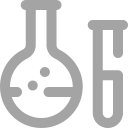
Product Description
Perifosine is an oral Akt inhibitor. All cells are sensitive to the antiproliferative properties of Perifosine with an IC50 of ~0.6-8.9 μM.
IC50 & Target: Akt[1]
In Vitro: The IC50 for growth of Ntv-a/LacZ cell lines is determined by MTT assay. When the cells are cultured for 48 hours in 10% FCS-supplemented media, the IC50 for cells with constitutively active PDGF, Ras, or Akt signaling is similar and found to be ~45 μM[1].Perifosine, a oral-bioavailable alkylphospholipid (ALK), on the cell cycle kinetics of immortalized keratinocytes (HaCaT) as well as head and neck squamous carcinoma cells. Proliferation is assessed by the incorporation of [3H]thymidine into cellular DNA. Exposure to Perifosine (0.1-30 μM) for 24 h results in a dose-dependent inhibition of [3H]thymidine uptake in all cell lines tested. The IC50s for growth are between 0.6 and 8.9 μM, reaching IC80s of ~10 μM. Perifosine blocks cell cycle progression of head and neck squamous carcinoma cells at G1-S and G2-M by inducing p21WAF1, irrespective of p53 function, and may be exploited clinically because the majority of human malignancies harbor p53 mutations. Perifosine (20 μM) induces both G1-S and G2-M cell cycle arrest, together with p21WAF1 expression in both p53 wild-type and p53-/- clones[2].
In Vivo: Mice are identified with tumors by bioluminescence imaging and either treated them with 100 mg/kg Temozolomide, or 30 mg/kg Perifosine, or a combination with 100 mg/kg Temozolomide and 30 mg/kg Perifosine (Temozolomide+Perifosine) for 3 to 5 days. The mice are sacrificed and tumors analyzed histologically for cell proliferation by Ki-67 immunostaining. Ki-67 staining index is significantly reduced in mice treated with either Temozolomide (Ki-67 staining index=5.5±1.2%, n=4, P=0.0019) or Perifosine (Ki-67 staining index=3.2±1.1%, n=3, P=0.001) compared with Control, demonstrating the inhibitory effect on proliferation. Most importantly, the tumors treated with Temozolomide+Perifosine have the lowest Ki-67 staining index (1.7±1.2%, n=3, P=0.0005). The additional treatment with Perifosine results in a significantly lower proliferation rate than Temozolomide alone (P=0.0087)[1]. Perifosine markedly decreases p-Akt from 10 min to 24 hours and subsequently, moderately decreased p-S6 from 1h to 24 h after injection[3].

Information
CAS No157716-52-4
FormulaC25H52NO4P
Clinical Informationclinicalinformation
PathwayPI3K/Akt/mTOR
Autophagy
TargetAkt
Autophagy

Specifications
Purity / Grade>98%
SolubilityH2O : ≥ 153.33 mg/mL (332.13 mM); DMSO : < 1 mg/mL (insoluble or slightly soluble)
Smilessmiles

Misc Information
Alternative NamesKRX-0401;NSC 639966;D21266
Observed Molecular Weight461.66